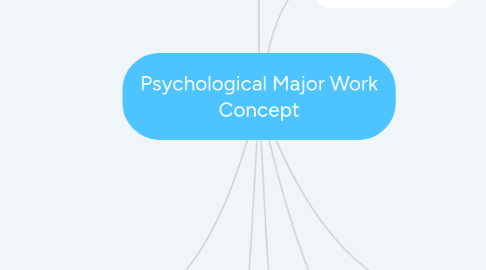
1. Dark Psychology
1.1. 'Machiavellians' are master manipulators
1.2. Del Paulhus did a series of studies into "the dark side of human personality"
1.3. Motivation, persuasion, manipulation, coercion
1.4. 'The Four Dark Personality Traits' - Narcissists, Machiavellians, Nonclinical Psychopaths, and Everyday Sadists
2. Personality Psychology
2.1. Personality Theorists
2.1.1. Hippocrates
2.1.1.1. Four 'humours'
2.1.2. Plato
2.1.2.1. The soul consists of three basic forces guiding human behaviour - Reason, Emotion and Appetite.
2.1.3. Aristotle
2.1.3.1. First biological psychologist. He believed the psyche included a set of faculties, placed on a hierarchy of importance. Nutritive, Perceptual and Intellectual.
2.1.4. Descartes
2.1.4.1. French Philosopher who set out to explain who the spiritual entity interacted with the physical body. He believed the "Pineal Gland" was the point of contact between the soul and the body.
2.1.4.2. 'Cartesian Dualism'
2.1.5. Macchiavelli
2.1.5.1. 'Machiavellianism'
2.1.5.2. Florentine Diplomat who believed people are essentially selfish, greedy, ungrateful and vengeful.
2.1.5.3. Believed there are two primary forces that defined human character; 'Virtu' and 'Fortuna'
2.1.6. Franz Gall
2.1.6.1. 'Phrenoloy'
2.1.6.2. Neuroanatomist/German Physician who believed the measurements of the skull revealed individual's inner thoughts and emotions.
2.1.6.2.1. The case of 'Phinease Gage'
2.1.7. Carl Jung
2.1.7.1. 'Typology' Theory
2.1.7.1.1. Popularised by Katherine Cook Briggs and Isabel Briggs Myers, developing into the 'Myers-Briggs Type Indicator'.
2.1.8. Abraham Maslow
2.1.8.1. Leader of 'Humanistic Psychology'
2.1.8.2. 'Maslow's Hierarchy of Needs'
2.1.9. Carl Rogers
2.1.9.1. Influential humanistic psychologist who developed a personality theory that emphasised the importance of 'self-actualisers'
3. Who/What is the 'Self'?
4. Logical Paradoxes
4.1. Ship of Theseus
4.1.1. If you were to replace all the parts of a ship over time, is it still the same ship as the original?
4.1.1.1. If you kept all those pieces and used them to create a second identical ship, which ship would be considered the original? Or would neither?
4.1.2. What makes something truly original?
4.2. 'Sorites' Paradox
4.2.1. If you take away a grain of sand, it's still a heap. If you take away another, and another, when does it stop being a heap?
4.3. Grelling - Nelson Paradox
4.3.1. 'Autological' = a word that can be used to describe itself. E.g. pronounceable is pronounceable. Heterological: A word that does not describe itself. E.g. triangle is not a triangle.
4.3.1.1. Is the word heterological, heterological? = Paradox.
4.4. Tele-transportation Paradox
4.4.1. If there was a teleportation machine in existence that essentially kills you, breaks you down into atoms and transfers that data to another machine which copies that atoms. Is the person who went into the machine the same person that came out?
4.4.2. How much of a person would have to be removed before you were no longer you?
5. Pop Psychology/Brain Laterisation
5.1. How does the brain's functions tie to the behaviour of the mind?
5.2. The left and right hemispheres govern and regulate different functions, resulting in a "split brain", connected by the "Corpus Callosum"
5.3. Pop Psychology Theory - Dominant sides of the brain determine whether an individual is more analytical or creative etc.
6. New/Old Brain Systems
6.1. Central Nervous System makes big decisions
6.2. Myth .- "Humans use only 10 per cent of their brains"
6.3. New brain systems are built upon old brain systems to perform new functions. E.g. less complex animals possess simple brains designed for basic functioning, whereas more complex animals possess brains that perform more complex tasks such as remembering, reasoning and predicting.
6.4. "Old Brain" - Inner core of the brain, the most ancient and central core of the brain situated above the 'Medula'.
7. Positive Psychology
7.1. The Scientific study of what makes life worth living
7.1.1. People like to believe that their lives have meaning - but do they really?

